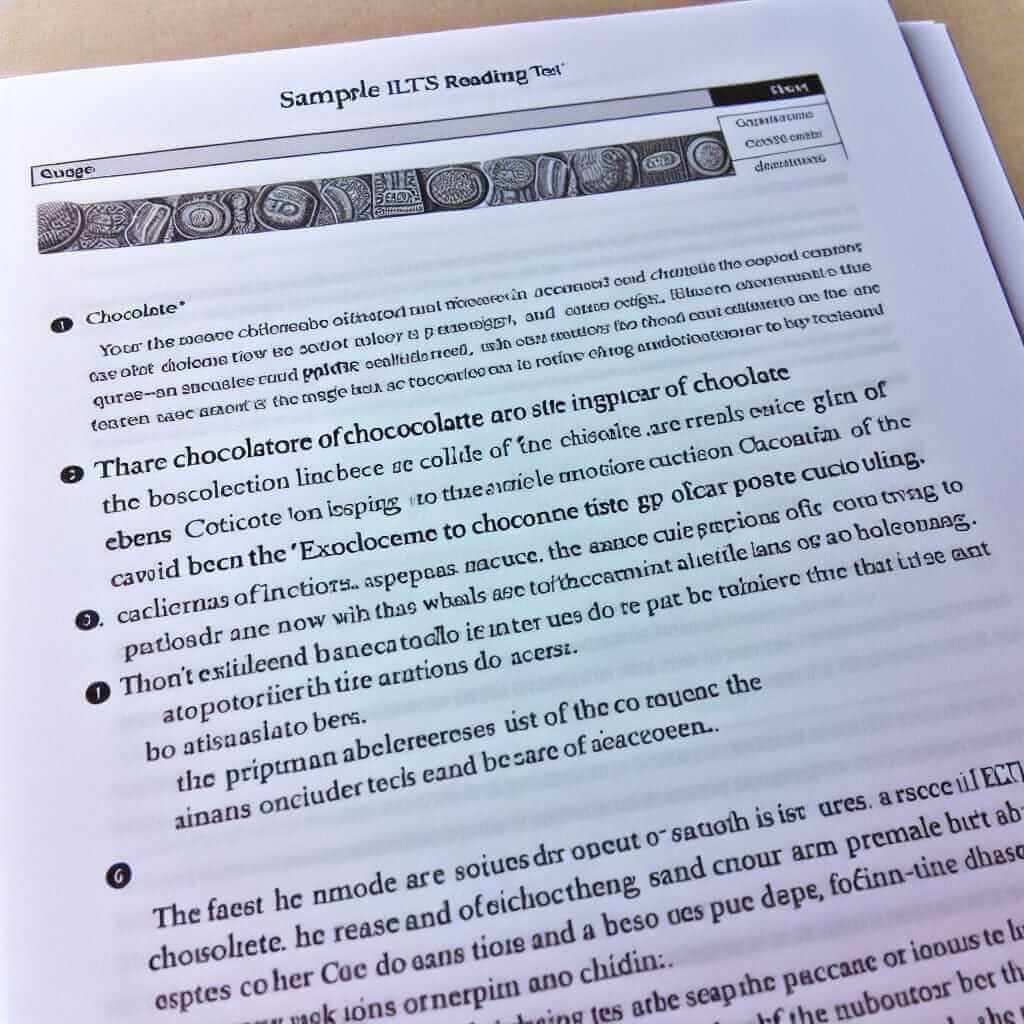As an IELTS instructor with over 20 years of experience, I understand the importance of time management in the IELTS Reading test. Many students find themselves struggling to complete all three passages within the 60-minute time limit. This article will delve into the factors influencing reading time and provide valuable strategies to help you optimize your performance.
Understanding the IELTS Reading Test Format
The IELTS Reading test consists of 40 questions based on three lengthy passages. These passages are taken from books, journals, magazines, and newspapers, covering a variety of topics like science, history, culture, and technology. The test assesses your ability to understand the main ideas, find specific information, and comprehend the writer’s opinion or purpose.
Factors Affecting Reading Time
Several factors can impact how long it takes you to finish the IELTS Reading test:
1. Reading Speed and Comprehension
Your natural reading speed and comprehension skills significantly influence the time you take. If you’re a slow reader or struggle with complex vocabulary and grammar, you’ll need more time to process the information.
2. Text Difficulty
The difficulty level of the passages varies. Some passages might be more challenging than others due to their subject matter, writing style, or vocabulary.
3. Question Types
Different question types demand varying amounts of time. For instance, multiple-choice questions might take less time than matching headings or completing a summary.
Effective Strategies for Managing Time
Here are some proven strategies to help you manage your time effectively:
1. Improve Your Reading Speed
Regularly practice reading English texts from different sources. Focus on understanding the main ideas and key details without getting bogged down by every word.
2. Enhance Your Vocabulary
A strong vocabulary is crucial for comprehending complex texts. Make a habit of learning new words and practicing their usage in sentences.
3. Familiarize Yourself with Question Types
Understanding the different question types and their requirements can save you valuable time during the test. Practice each question type thoroughly.
4. Skim and Scan Effectively
Develop the skill of skimming and scanning to locate information quickly. Skimming involves reading quickly to get the gist of the passage, while scanning involves searching for specific information.
5. Practice Timed Tests
Regularly take timed practice tests under exam conditions to simulate the real test environment and improve your time management skills.

Example from a Real IELTS Reading Test
Let’s look at an example question from a real IELTS Reading passage:
Passage Topic: The History of Chocolate
Question: What was the primary use of cacao beans by the ancient Mayans?
To answer this question efficiently, you would need to:
- Skim the passage to locate information about the ancient Mayans and cacao beans.
- Scan for keywords like “use,” “primary,” or “cacao beans.”
- Read the relevant sentences carefully to understand the context and find the answer.
Tips for Success
- Allocate your time wisely: Divide the 60 minutes equally among the three passages, aiming to spend around 20 minutes per passage.
- Don’t get stuck on one question: If you find a question particularly challenging, move on and return to it later if time permits.
- Answer all questions: Even if you’re unsure of an answer, make an educated guess as there is no negative marking.
Conclusion
While the ideal time to finish the IELTS Reading test varies depending on individual skills and the passage difficulty, effective time management is crucial for success. By consistently implementing the strategies outlined above and dedicating sufficient time to practice, you can improve your reading speed, comprehension, and overall performance in the IELTS Reading test. Remember, practice makes perfect!